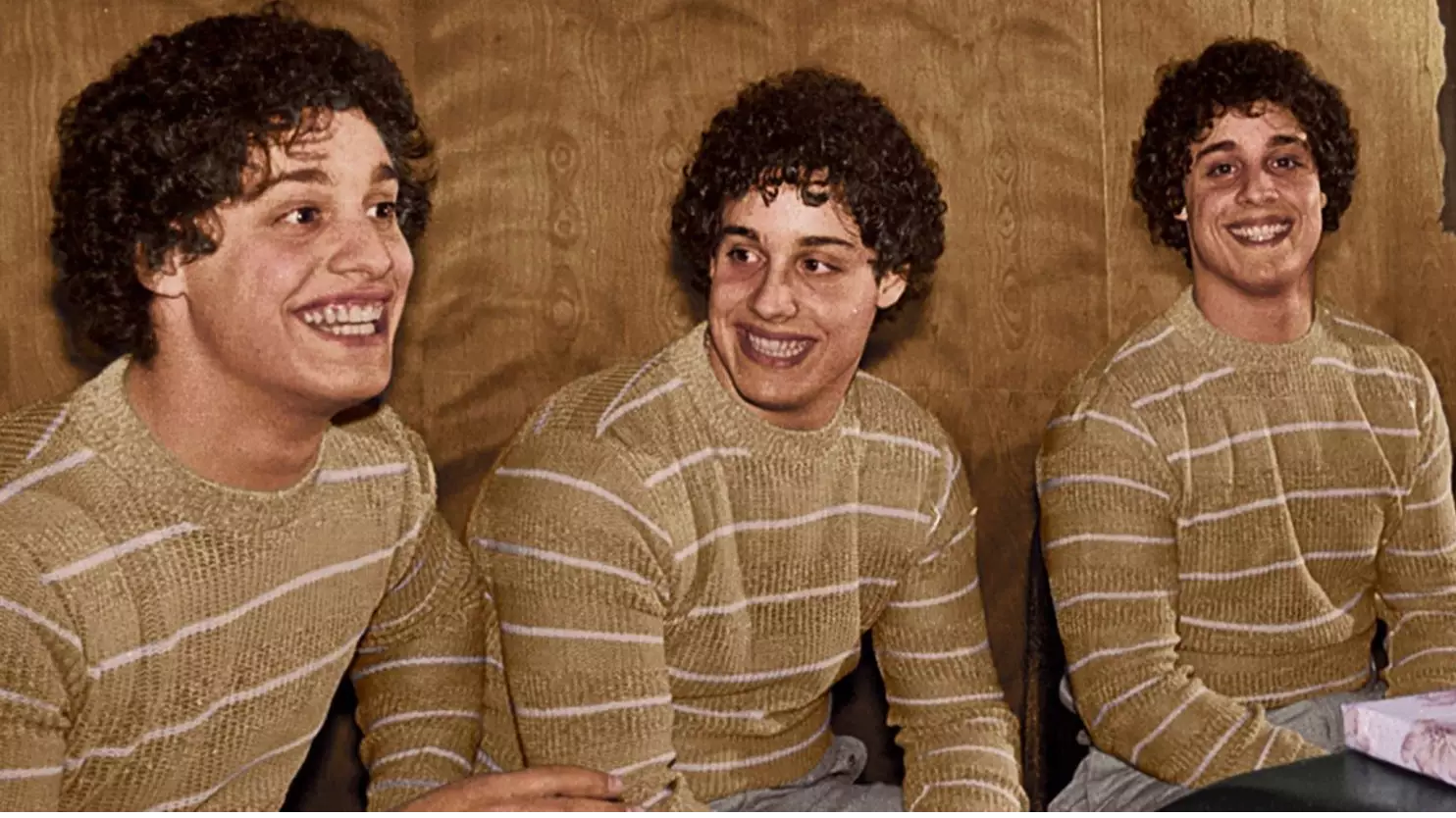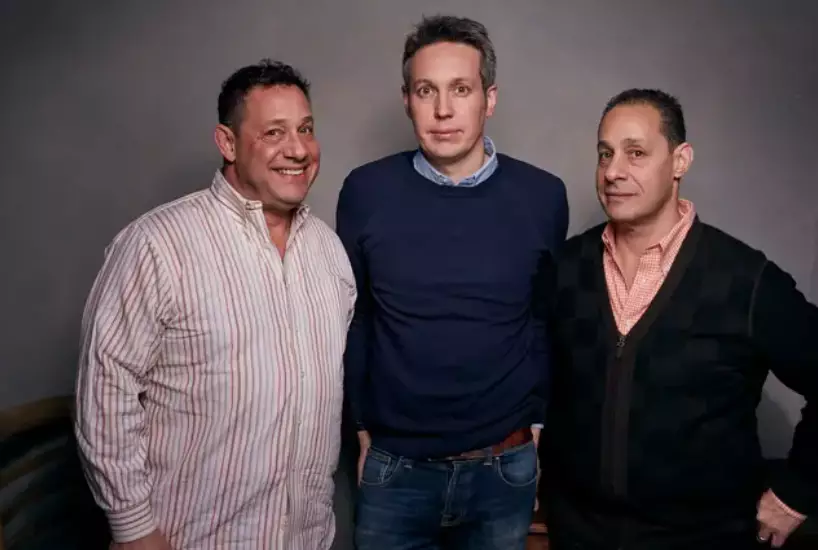
A set of triplet brothers in the United States were separated at birth by their adoption agency, before reuniting by chance years later. A documentary was made about the bizarre story for Netflix - watch the trailer below:
The boys were separated as part of a controversial scientific experiment, conducted by child psychiatrist Dr. Peter B. Neubauer. None of their adoptive parents were told about the study, nor of the existence of the other triplets.
Advert
Years later, when Robert Shafran went to college in 1980, he was confused to find that people thought they already knew him. It turned out they thought he was a guy called Eddy, a student who'd left the previous year before transferring to another college.
Robert soon met Eddy via a mutual friend who knew they'd both been adopted ("You have a twin!" the former was told). As Robert explained in the documentary, when they first set eyes on each other: "It was like everything faded away, and it was just me and Eddy."
Soon, David Kellman, who was studying in a New York college at the time, saw a news story about the two and recognised his own face in theirs. David contacted Eddy's house and spoke to his mother, who reportedly said: "Oh my God, they're coming out of the woodwork!"
As the trio soon learned, they were three surviving brothers of a rare set of identical quadruplets, the fourth having sadly died at birth.
Advert
An adoption agency revealed they'd been born on Long Island, New York, and separated soon after being born.
Their story is told in the documentary Three Identical Strangers - which is currently streaming on UK Netflix - and reveals the dark turns their lives (and backstory) would take.
Upon their initial discovery, the three were delighted. They had a brush with fame, making TV appearances and being taken out to famous New York nightspots like the Mudd Club, by photographers for magazines such as Rolling Stone.
Having realised they were related, the boys approached the adoption agency, who told them they had been separated because of the difficulties of finding a single household for triplets.
Advert
However, it later emerged that Robert, David and Eddy had been part of a child development study.
Their adoptive parents had been told that the boys were part of a study concerning adopted children, but the full intent of this was never revealed. As such, all three had been subject to occasional visits and evaluations.

Further questions revealed the three to be part of a (legal) experiment by Dr Neubauer, a psychoanalyst from Manhattan's Child Development Centre.
Advert
His aim was to investigate the Nature vs Nurture debate, which explores the how genetics and environment can affect a person's development into adulthood, and dates back (in some form) to the 17th century.
Despite its murky methods, the study was funded by America's National Institutes of Health. The boys were monitored, and had been placed in Jewish homes with very different social backgrounds, to explore the environmental effects on their development in depth.
As details emerged, criticism of the study grew and its results were never published.
The effect on the three boys was stark. After their initial fame, they opened a restaurant called Triplets. Its first year was a success, but their relationship became strained and it closed in 2000.
Advert
Tragically, Eddy took his own life aged just 33.
In the years that followed, the two surviving brothers drifted apart. Robert went on to become a lawyer, and David became an insurance consultant, but the latter says the documentary gave them 'a reason to spend more time together and work harder on our relationship'.
However, they still have questions regarding the experiment, and have explored legal options. As Robert said to The LA Times: "What was the whole point of this? All this observation, collecting all this data, and no conclusions?"
"What they did to us wasn't a question of law. These people were entrusted with God-like power and decisions."
Featured Image Credit: Netflix